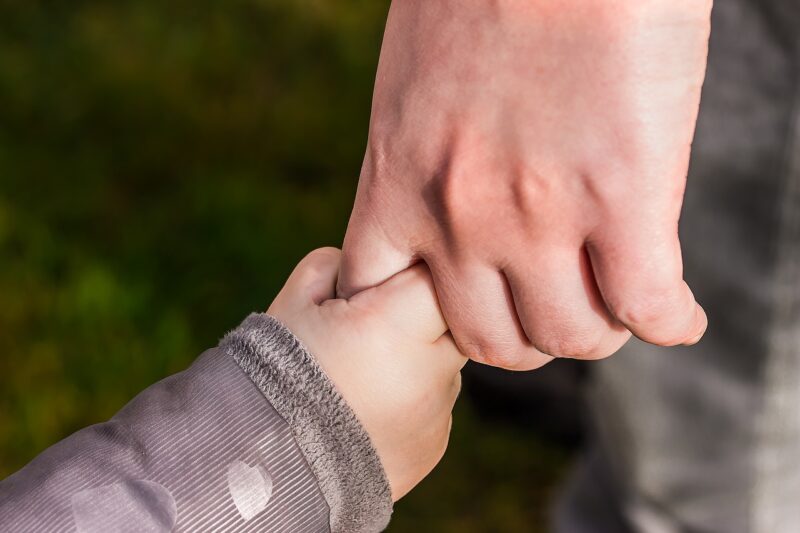
As parents, we often strive to be role models for our children, demonstrating values such as respect, kindness, and integrity. One fundamental aspect of nurturing these values is recognizing the importance of apologies in our relationships, particularly with our children. Apologizing can be a powerful tool that not only reinforces the parent-child bond but also teaches essential lessons about accountability, empathy, and emotional intelligence.
1. Why Apologizing Matters
Kids are astute observers. They absorb our actions, words, and behaviors, forming their understanding of relationships based on what they see. When parents show the ability to apologize, they model the behavior of humility and acknowledge that everyone makes mistakes, including adults. Here are a few reasons why apologizing to children is crucial:
- Models Accountability: Saying sorry demonstrates that owning up to mistakes is not only acceptable but essential. Kids learn that everyone is human and can make missteps, and taking responsibility helps us grow as individuals.
- Promotes Emotional Growth: Apologizing opens the door for discussions about feelings. It shows children that it’s okay to express emotions and deal with the impact of our actions on others. Kids who witness apologies are more likely to practice emotional intelligence themselves, as they learn to navigate relationships respectfully.
- Strengthens Trust and Resilience: A heartfelt apology can rebuild trust after conflicts or misunderstandings. Children become more resilient in facing setbacks and learn that relationships require effort and communication to heal and strengthen them.
By apologizing, parents can help cultivate a safe emotional environment where children feel valued and understood.
2. Common Scenarios for Apologizing
Parents can find themselves in numerous situations where a simple apology makes a significant impact. Here are some common scenarios:
- When You Lose Your Patience: Parenting can be stressful, and there may be times when you lose your temper. Apologizing for reacting harshly shows children that it’s okay to express frustration but emphasizes the importance of handling it differently in the future.
- After Making a Mistake: If you inadvertently say something hurtful or dismissive, owning up to your mistake teaches children about the power of words and the value of reparations. Explaining your intention and acknowledging how it came across will profoundly resonate with them.
- When You Know You’ll Let Them Down: Whether you need to cancel a planned outing or change family plans, letting them know you’re sorry for not meeting expectations encourages them to express emotions and teaches them that life sometimes involves disappointing moments that can be discussed and resolved.
These instances provide valuable opportunities for meaningful discussions about honesty, empathy, and maintaining close relationships with others.
3. How to Effectively Apologize to Your Children
While the act of apologizing may seem straightforward, delivering a genuine apology requires thoughtfulness and intention. Here are steps to consider when apologizing:
- Acknowledge Your Mistake: Start by clearly stating what you did wrong or how you may have hurt your child’s feelings. Be specific to demonstrate your understanding of the situation and its impact on them.
- Take Responsibility: Avoid placing the blame on circumstances or your child’s behavior. Accept full accountability for your actions, as doing so models integrity for them.
- Express Regret: Share how your actions may have affected your child’s feelings. Expressing genuine regret will resonate more deeply than a simple acknowledgment of the mistake.
- Make Amends: Whenever possible, offer a way to rectify the situation. Discuss what you can do to make things better moving forward, creating a collaborative path to healing.
- Give Them Space: Allow them to process how they feel about your apology. Respect their emotional experience and communicate that you’re available once they’re ready to talk again.
By following these steps, you lay the groundwork for meaningful dialogue, further enhancing emotional trust between you and your child.
4. How Children Learn from Observing Your Apologies
Children are astute observers and quick learners. When they witness their parents apologize, they develop expectations about handling conflicts in their future relationships. They internalize polite social behaviors and understand that making mistakes is an ordinary part of life. Children’s responses can reflect their perceptions of relationships, based on what they observe from you.
Here are some implications for children’s learning:
- Adopting Reflective Practices: Kids benefit from parents showing that the reflection process after a conflict can lead to personal growth and improved behavior in the future. They learn that thinking about actions before responding promotes mindful interactions.
- Building Social Skills: They will be better equipped for their interactions with friends and family, leading to healthier relationships as they grow. Understanding how to give and receive apologies fosters positive communication skills and teamwork in various environments.
- Enhancing Empathy: Kids develop an increased sense of empathy, understanding that everyone grapples with emotions and that kindness should be prioritized, especially when interacting with others during difficult times.
Your apologies not only strengthen your bond with your child but also equip them with essential tools they’ll need throughout life.
5. Overcoming Apology Challenges
Despite understanding the value of apologies, some parents may struggle to admit mistakes or feel that it undermines their authority. To overcome these challenges, consider the following:
- Shift Your Perspective: Understand that apologizing does not equal weakness; it signifies strength and emotional intelligence. This mindset shift helps alleviate judgment and self-doubt regarding vulnerability in front of your children.
- Prepare Yourself Mentally: Practice acknowledging your mistakes out loud, even when alone. This rehearsal can build your confidence and ease discomfort when speaking with your child.
- Start Small: If apologizing is new to you, begin by acknowledging minor mistakes. Gradually escalate to more significant issues as comfort grows, allowing you to develop a robust apology habit together with your children.
Cultivating the skill of apologizing requires practice and patience but can greatly enhance your family’s emotional dynamics.
Conclusion
Apologizing to your children is a powerful act that fosters trust, empathy, and accountability. Through genuine apologies, parents instill valuable life skills in their children while simultaneously strengthening their bond. It teaches children that relationships require a commitment to understanding, healing, and growing. As parents navigate the challenges of raising kids, embracing the transformative power of apologies will pave the way for more respectful, resilient, and emotionally intelligent future generations.
In a world where personal connections can face turmoil, the ability to apologize and forgive is an invaluable life lesson. So, take a moment to acknowledge your missteps, express your regrets, and dismantle the barriers that prevent open communication in your parenting journey. The impact of your heartfelt apologies can last a lifetime.






